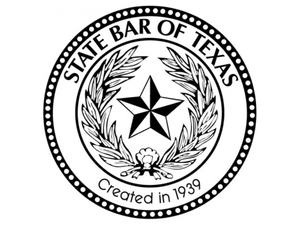









A Texas Affidavit of Heirship is a sworn statement filed in the county property records which identifies the names of the heirs of a deceased property owner. Its formal name is “Affidavit of Facts Concerning Identity of Heirs.”
When a person who owns a house dies, the house cannot be transferred or sold until the deceased owner’s name has been removed from the property title. Before you can do this, the deceased person’s heirs need to be identified.
Unless there is a Will or other estate plan in place, a Texas Affidavit of Heirship may be needed to identify the heirs of the property.
Once this affidavit is properly prepared and recorded, the heirs are identified in the property records as the new owners and they may transfer, sell or mortgage the property if they choose to do so. Please be aware that ALL heirs must agree to transfer, sell or mortgage the property.
 A wooden desk with a gavel in the foreground, a stack of books with one open and scales on the left side." width="500" height="350" />
A wooden desk with a gavel in the foreground, a stack of books with one open and scales on the left side." width="500" height="350" />
The purpose of an Affidavit of Heirship is to identify the living heirs of a house belonging to a deceased real estate property owner.
Before a property deed can be used to transfer or sell the house, an affidavit should be prepared, signed, notarized, and filed in the county clerk’s office in the county where the property is located.
Once the affidavit is recorded, the property records will be updated to show the heirs as the new owners of the property. This completes the chain of title from the deceased owner to the heirs who are the current owners. Thereafter, those heirs may transfer or finance the house if they wish.
Even if the deceased had a Will, an Heirship Affidavit may be used instead of probating the Will if the Will leaves the property solely to the direct descendants of the deceased and to no other person or entity.
Using this affidavit may be a quicker and less expensive option compared to a probate proceeding. Probate may cost well over $3000 and take many months.
On the other hand, an Affidavit of Heirship costs $300 plus recording fees of approximately $40. Furthermore, once we have the information needed, in most cases, your document can be emailed to you the same day.
Note: Most often, a Will may only be probated within 4 years of the death of a property owner.
If this timeframe has lapsed, an Affidavit of Heirship may be a useful alternative as it can be filed at any time.
In Texas, an Affidavit of Heirship should be signed by three people that knew the deceased owner personally for over 10 years. One of the three people can be an heir, but the other two should not be heirs. A title company, buyer, or mortgage company may reject the Affidavit of Heirship if these rules are not followed.
An Affidavit of Heirship can cover all real estate owned by the deceased person, not just one property. Multiple Affidavits of Heirship are not needed if the deceased owned more than one property.
Note: An Affidavit of Heirship does not transfer property. It identifies the person or persons to whom the Texas inheritance laws transferred the property. A Deed is not necessary; just the Affidavit of Heirship.
A deed is necessary if one of the heirs wants to transfer the property to another heir or to someone else.
Legally speaking, a deed can be any document that names or identifies the owner of a property. Since an Affidavit of Heirship names and identifies the heirs as the new owners of the new property, it is their deed. In this case, the owner inherited the property from the deceased owner. The Affidavit of Heirship names the heir as the new owner. It is the only deed the heir needs to prove his or her ownership of the property, in most cases.
Note: If for any reason you cannot locate three people that knew the family and marital history of the deceased for at least 10 years, you may need to hire a probate attorney and file a formal Application to Determine Heirship with the local probate court.
This can be done at anytime and whether or not there was a Will. The process is more expensive than a $300 Affidavit of Heirship, but it is a good option if you cannot find three people that personally knew the deceased at least 10 years.